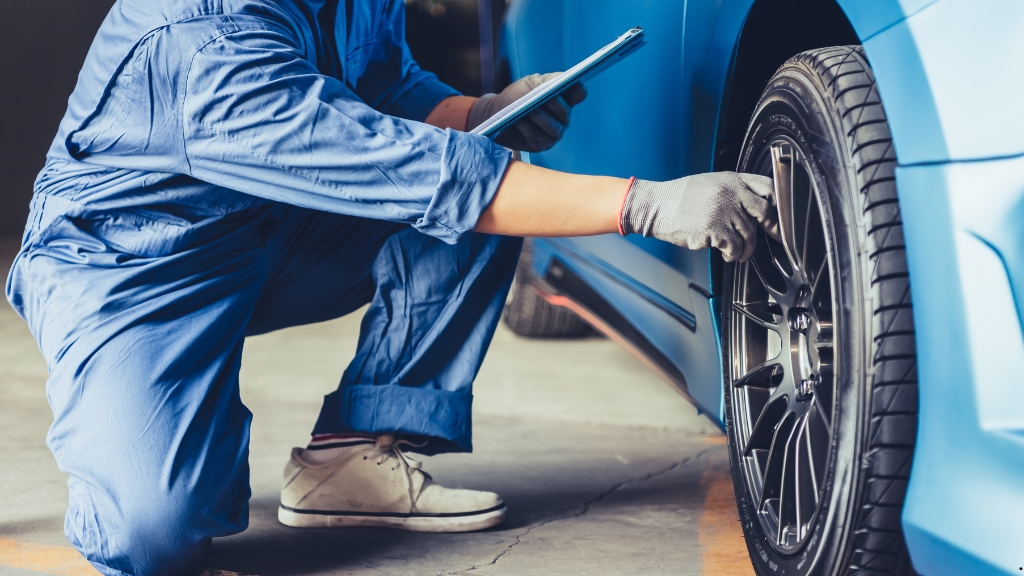
Why Regular Inspections Are Critical for Vehicle Safety: Essential Insights for Every Driver
by Elton Jordan
When it comes to vehicle safety, regular inspections are non-negotiable. I’ve seen firsthand how a simple check can prevent major accidents and save lives. Ignoring routine maintenance can lead to costly repairs and, worse, dangerous situations on the road.
Every vehicle has its quirks, and over time, wear and tear can compromise essential systems. From brakes to tires, each component plays a critical role in ensuring a smooth and safe ride. By prioritizing regular inspections, I’m not just protecting my investment; I’m also ensuring the safety of everyone on the road. Let's dive into why these inspections are vital for keeping our vehicles—and ourselves—safe.
Importance of Vehicle Inspections
Regular vehicle inspections play a crucial role in maintaining safety on the road. Consistent checks ensure that potential issues are identified early, helping to prevent accidents and costly repairs.
Safety Benefits
Safety benefits arise from routine vehicle inspections. Inspecting critical components, like brakes and tires, reduces the risk of mechanical failures. Research shows that 30% of accidents stem from vehicle-related issues. Regular inspections identify worn-out parts, ensuring they function correctly. They also enhance visibility by checking headlights and taillights, promoting safer driving conditions.
Financial Implications
Financial implications of neglecting vehicle inspections can be significant. Minor issues, if left unchecked, often escalate into expensive repairs. Statistics indicate that regular inspections can reduce repair costs by up to 50%. Ensuring a vehicle's optimal performance can also improve fuel efficiency, saving money on gas. Furthermore, maintaining a vehicle's condition can increase its resale value, providing a better return on investment.
Types of Vehicle Inspections
Vehicle inspections fall into two primary categories: routine maintenance checks and state-mandated inspections. Both types serve vital roles in ensuring vehicle safety and reliability.
Routine Maintenance Checks
Routine maintenance checks focus on essential vehicle components. I regularly assess brakes, tires, lights, and fluids. These checks help spot wear and tear before they lead to severe issues. I often inspect:
Brakes: Checking for responsiveness and wear levels.
Tires: Ensuring proper inflation and tread depth.
Lights: Verifying that headlights, taillights, and turn signals function.
Fluids: Monitoring oil, coolant, and brake fluid levels.
Conducting these checks can enhance vehicle performance and reduce the likelihood of mechanical failures, ultimately safeguarding my travels.
State-Mandated Inspections
State-mandated inspections are required by law and ensure that vehicles meet safety and emissions standards. I know that requirements vary by state, but inspections usually cover:
Safety Components: Evaluating brakes, steering, and suspension.
Emissions Compliance: Testing exhaust systems for pollutants.
Verification of Equipment: Ensuring the presence of necessary safety features like seat belts.
Completing state-mandated inspections helps me comply with regulations, prevents potential fines, and promotes road safety for everyone.
Consequences of Skipping Inspections
Neglecting vehicle inspections leads to significant consequences that affect safety and compliance. Below are key areas impacted by skipping these vital checks.
Safety Risks
Safety risks escalate when inspections are overlooked. Faulty brakes, worn tires, and malfunctioning lights contribute to dangerous driving conditions. Approximately 30% of accidents stem from vehicle issues. Regular inspections catch these problems early, averting serious accidents. Ignoring checks might result in incidents that not only endanger the driver but also risk the lives of passengers and other road users.
Legal Ramifications
Legal ramifications follow from failing to adhere to inspection requirements. Most states mandate vehicle inspections to ensure compliance with safety and emissions standards. Skipping these inspections can lead to hefty fines and penalties. Additionally, driving without a valid inspection permits law enforcement to issue citations. Accumulating these violations can increase insurance premiums and complicate future claims. Keeping vehicles properly inspected protects against these legal complications.
Best Practices for Vehicle Inspections
Adhering to best practices during vehicle inspections enhances safety and performance. Regular inspections contribute significantly to road safety and vehicle longevity.
Frequency and Timing
I recommend conducting routine vehicle inspections at least once every six months. For older vehicles or those that see heavy use, quarterly inspections are advisable. Timing is essential; schedule inspections before long trips or seasonal changes to address issues proactively. For state-mandated inspections, familiarize yourself with local regulations, as frequency varies by state—some require annual checks, while others may be biennial.
Choosing the Right Mechanic
I prefer selecting a qualified mechanic based on experience, certifications, and customer reviews. Look for mechanics with ASE (Automotive Service Excellence) certification as it ensures proficiency. Word-of-mouth referrals can also aid in finding trustworthy mechanics. Always inquire about their inspection procedures and whether they follow manufacturer guidelines. Establishing a long-term relationship with a reliable mechanic can lead to more personalized service and better care for my vehicle.
Conclusion
Regular vehicle inspections aren't just a good idea; they're essential for safety on the road. I've seen firsthand how a simple check can prevent accidents and save money in the long run. By staying on top of inspections, I'm not only protecting my investment but also ensuring the safety of everyone around me.
Neglecting these checks can lead to serious consequences, both for my vehicle and the people who share the road with me. It’s clear that prioritizing inspections is a smart choice that pays off in terms of safety, performance, and even legal compliance. So let’s make it a habit to keep our vehicles in top shape and drive with confidence.
